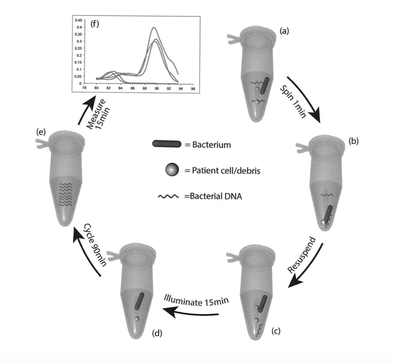|
Dr Tom Cromarty Editor Interests: Paediatric Emergency Medicine, Medical Engagement and Leadership, Simulation, Quality Improvement, Research Twitter: @Tomcromarty |
Welsh Research and Education Network
WREN BlogHot topics in research and medical education, in Wales and beyond
Dr Celyn Kenny Editor Interests: Neonates, Neurodevelopment, Sepsis, Media and Broadcasting Twitter: @Celynkenny |
|
Annabel Greenwood ST4 As a Neonatal Registrar, it is not uncommon to be faced with the situation of an equivocal or borderline CSF result when testing for neonatal meningitis. Even when considered together with the clinical picture, it can often be difficult to interpret. Should the baby be started on antibiotics? And if so, for how long? A diagnostic conundrum. It was therefore an exciting prospect to hear that our Neonatal Unit was participating in the ‘PCRctic Study’ for the diagnosis of neonatal meningitis. But what exactly does this study involve I hear you cry?!... What is the PCRctic Study?A multi-centre prospective study designed to enhance the diagnostic accuracy of neonatal meningitis. Why is it important?Neonatal bacterial meningitis is a serious illness that can be fatal if not treated. Early diagnosis is key. However, the diagnosis of neonatal meningitis is often challenging, both clinically and microbiologically, resulting in uncertainty regarding antibiotic initiation and duration of treatment. The negative predictive value of bacterial culture is low and can be inaccurate in confidently excluding bacterial meningitis. What does it involve?"PCRctic" is a novel assay based on 16S rDNA PCR technology. It aims to detect a single intact bacterium whilst eliminating free DNA from dead and/or contaminating bacteria, therefore enhancing diagnostic accuracy, eliminating false positive results, in a rapid, cost-effective fashion. This new diagnostic assay could lead to reduced antibiotic use and hospital stay for many newborn babies tested for meningitis. How does it work in practice?CSF is collected in the standardised way. At least 5 drops are to be collected in each bottle; two of which are standard universal containers, and one an Eppnedorf tube. Parents are consented before inclusion into the study. The samples are then sent to the lab for further analysis…. What does the future hold?PCRctic has already shown promising results for the diagnosis of neonatal bacterial meningitis. The study is currently ongoing across a number of tertiary neonatal units in the UK. Such novel molecular techniques have the potential to replace bacterial culture and enhance our antibiotic stewardship. Want to learn more...'Multi-centre diagnostic accuracy study of PCRctic - a novel 16s rDNA PCR assay for exclusion of neonatal bacterial meningitis' Dr A Abelian, Betsi Cadwaladr University Health Board
0 Comments
Leave a Reply. |
Editors
Dr Annabel Greenwood Categories
All
|







 RSS Feed
RSS Feed
